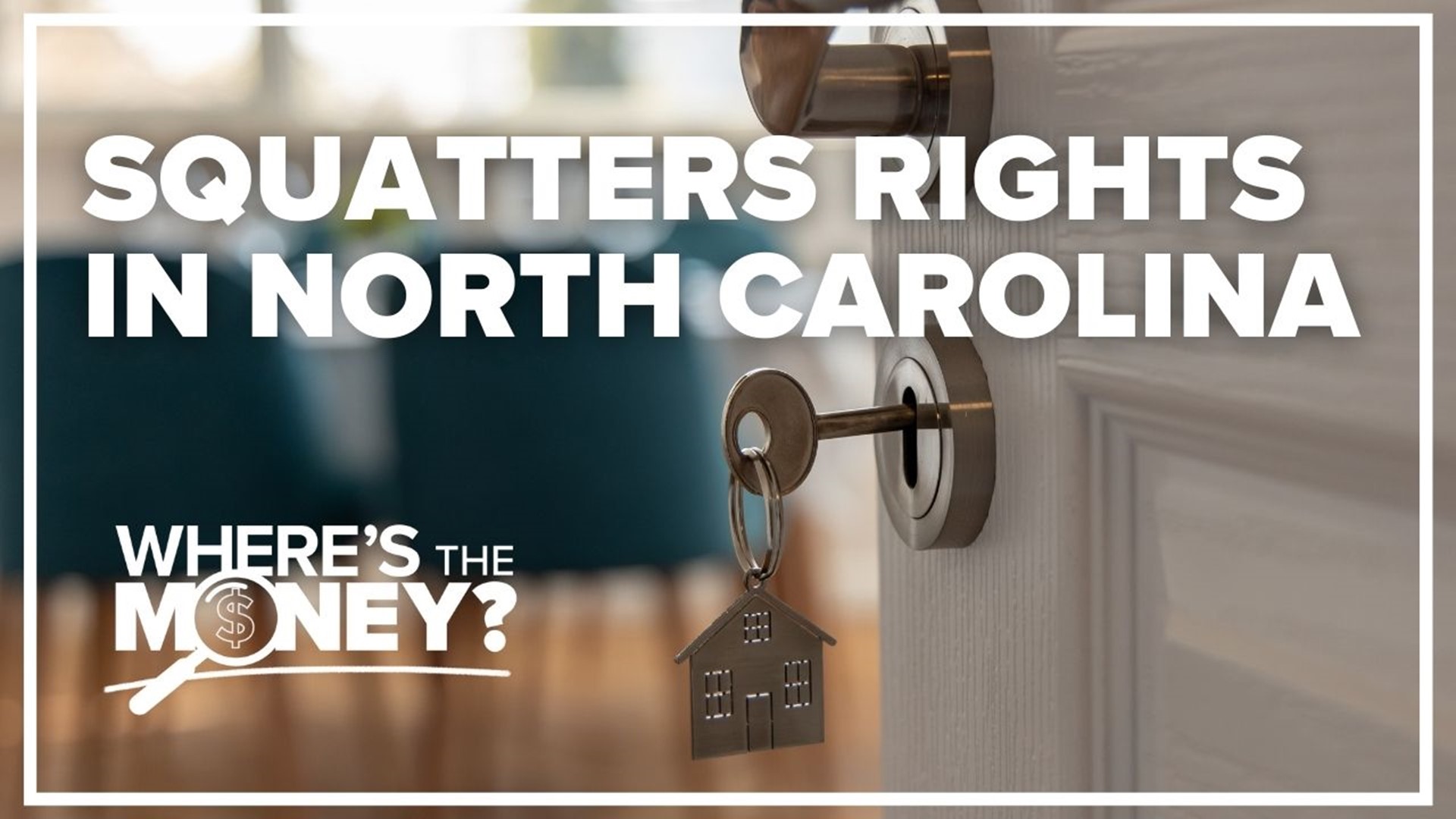CHARLOTTE, N.C. — These days, big property management companies, even individual investors, are making no-contact key tours available for prospective tenants and buyers. The problem is, people are finding ways to hack the system and make themselves feel right at home as long as they can.
People who occupy a property without permission are either trespassers or squatters, and there are legal differences between the two.
Trespassers are considered to be committing a crime, while squatters have intent to claim ownership of said property they're occupying.
Matt Fleishman, a Charlotte-based attorney, defines a trespasser as someone who goes onto your property for a short period of time without trying to get ownership. Those people can be arrested, Fleischman says.
"A squatter, or adverse possession, is civil in nature," he said. "This is a claim of ownership on the property. So if you have a squatter claiming ownership, the police don't do anything with that. So if you have somebody, for example, who has overstayed their welcome and you want them out, you can call the police, but they'll say it isn't a crime, there's nothing for us to do with it."
Fleishman said property owners will then take the squatters to court and file to have them evicted.
"You need to get a judgment to evict them," Fleishman said. "And then, the sheriff will go out and evict this person from the property. That's the distinction between the two."
Fleishman said the process of claiming adverse possession or squatting, rarely happens and is known to take a long time, and North Carolina has clear guidelines about squatters' rights. Decades-long requirements, in fact.
"A lot of it's going to be dependent on how long that squatter's been on the property," he said. "In North Carolina, you have to be on the property for 20 years. It has to be uninterrupted. It has to be open and obvious to the owner of the property that this person is there, and once they've done all these things and achieve those requirements, they have a right to that property."
Chad Floyd, a Charlotte realtor at Keller Williams, had his own experience with some unwanted guests in the summer of 2020.
"I saw crack pipes, I saw needles," he said. "There were people just passed out in the house on the floor, trash everywhere."
Floyd said in this particular case, the tenants turned in their keys and the end of their lease, but not before making copies. It then turned into a back-and-forth, with Floyd trying to get the tenants out and the locks changed for good.
"It became a cat and mouse game," Floyd said. "We change the locks, they break in through the windows. We lock the windows, they break the windows."
It eventually came to an end when Charlotte-Mecklenburg police arrested multiple people at the property. Floyd said he's heard anecdotally of an increase in trespasser or squatter run-ins in the Charlotte area over the last couple of years.
WCNC Charlotte is always asking "where's the money?" If you need help, reach out to WCNC Charlotte by emailing money@wcnc.com.
"When the pandemic started, all of a sudden you have a situation where people might be priced out of their rentals," Floyd said. "They might just lose access to affordable housing and the option of squatting becomes a little more attractive to somebody."
Floyd recalled one instance where he was the person who received a call from the police in the middle of the night regarding what was supposed to be a vacant home.
"The issue is that CMPD is not authorized to act unless they're given direct access by the homeowner," Floyd said. "And in the case where the homeowner is some out-of-state investor, that's a hard person to get ahold of because it's some LLC in Delaware or whatever."
Floyd said homeowners are then left relying on neighbors to overlook what's going on in their community.
"You're relying on the vigilance of the public and hoping your neighbors are kind of overseeing your home where 'hey this doesn't look right. Let's make sure we're keeping our neighborhood safe.'"
Contact Jane Monreal at jmonreal@wcnc.com and follow her on Facebook, Twitter and Instagram.
WCNC Charlotte is committed to reporting on the issues facing the communities we serve. We tell the stories of people working to solve persistent social problems. We examine how problems can be solved or addressed to improve the quality of life and make a positive difference. WCNC Charlotte is seeking solutions for you. Send your tips or questions to newstips@wcnc.com.

